LOST 016 - The End Of The Beginning
A single/triple episode as the first season draws to a close. Unpacking the TV show LOST — Season 1: Episodes (technically) 23-25

Note: this essay was originally published on Revue on September 11, 2022.
Previously, on LOST: The Oceanics crashed on a mysterious tropical island and made some flotsam out of their jetsam. The monster that lives in the jungle ate their pilot (oh yeah; there’s a monster in the jungle). They had some laughs. They played some golf. They found some guns. They found a small airplane hanging in some trees, and it fell and Boone died and their doctor, Jack, blames their hunter-slash-mystic-slash-cult-leader, Locke, for that tragic end. They found a hatch emblazoned with their Hurley’s lottery numbers. A Frenchwoman tortured their Sayid (oh yeah; there’s a Frenchwoman in the jungle). Mysterious Others kidnapped their Claire, who was pregnant at the time, but she came back and gave birth to an as-yet unnamed baby we’re calling Turnip Head for now. Their Kate was recently exposed as a fugitive. Their Charlie kicked his heroin habit. Their Sun revealed she speaks English and made herself insanely useful. Their Shannon revealed she speaks French and … did not make herself useful. And their Michael decided to get his Walt off the island by building a raft, assisted by Sun’s controlling husband, Jin, who has recently realized how dickish he’s been, and has been working on both himself and the raft.
Also, their Sawyer shot a polar bear (oh yeah; there are polar bears).
I think that’s everything. Let’s make the donuts.
O B S E R V A T I O N
Danielle Rousseau, whose action figure comes with a bolt-action rifle, wanders into camp in early morning, looks at Claire’s baby portentously, and proclaims: “The Others Are Coming."¹
This kicks off the finale.
In what will become LOST tradition, the finale is listed as 3 episodes, and indeed it is as long as 3 episodes, but they aired all at once and they tell a single story and they all have the same title.
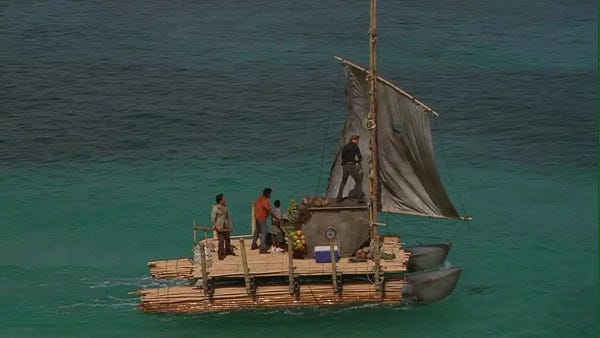
___
Episodes 23-25: EXODUS, Part 1 (I’m Not Good At Goodbyes): Rousseau runs the numbers: Sixteen years ago she and her team of six washed up on the island. Two months later she delivered her baby, Alex. One week later she saw a pillar of black smoke. That night The Others came and took her baby.
(She leaves out the part where she met a time-travelling Jin. We’ll get there.)
Now—because of Turnip Head—she’s quite sure that history is repeating, and The Others are coming again. She offers the Oceanics three choices: run, hide or die—completely forgetting the universal option, “boogie.” Look, she’s been living alone for years; let’s forgive her.
Jack doesn’t see any pillars of black smoke, so his reaction is “whatever, I’m all about that raft-launching life, son.” Yes, the raft is finally ready. Everyone works together to launch, and it’s almost amazing, but Sawyer misses a lever, and one of the cross beams goes out of skew on treadle.
And that’s when Walt draws their attention to the pillar of black smoke rising from the far side of the island.
Time to panic!
Where to hide 40 people? How about … a hatch? Sayid still quite rightly sees this as crazy—the most likely owner of the hatch is The Others², after all—but The Gang Is Out Of Options and Rousseau has a hookup on “dynamite, at the Black Rock, in the Dark Territory,"³ and dynamite will probably blow a hatch door off its hinges, so off they go—Jack, Rousseau, Hurley, Locke, and Kate, with recently introduced redshirt Arzt in tow.
As they draw near, it starts to rain … and the monster passes by. The rain stops as It leaves.⁴ Locke, notably, is unconcerned, keeping still and watchful when the rest run away. Rousseau refers to the monster as "a security system,” which we’ll someday learn is what her infected lover called it right before he tried to kill Rousseau and Rousseau shot him.
The away team arrives at The Black Rock, and (as you know if you’ve been reading along), The Black Rock is a ship—a 19th century slave ship, to be exact.⁵
Sayid pimps the raft out with a radar transmitter and a single flare, and then it’s time for a series of extremely affecting goodbyes that the show has absolutely earned through its tight focus on character—the true benefit of burying its big mystery plot like a hatch in the jungle (see what they did there?) Off go Jin and Sawyer, Michael and Walt. Vincent swims out to try to join Walt but Walt orders him back and if you don’t get misty-eyed in that moment I can’t help you.
The music swells majestically. The raft sails a sea as green as green milk, blue as laundry water, wine dark.
End of Part 1.
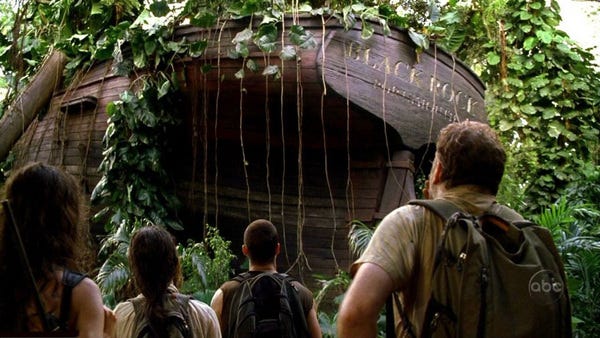
Episode 23-25: EXODUS, Part 2 (You’ve Got Some Arzt On You). The away team wonders how a ship gets miles inland. Arzt speculates that it must have been a tsunami. (He’s right! Good job Arzt!)
Rousseau, having taken them where they’re going, bounces, leaving them to rely on Locke to get back—and it speaks volumes about the trust recently lost between the two that Jack would clearly prefer to stick with crazy-eyes Rousseau over Locke, who isn’t exactly not developing crazy-eyes of his own.
Inside is the dynamite—also skeletons in chains. Slaves. Locke guesses that since they’re in the Pacific, it must have left from Africa’s east coast. He’s wrong, but in his defense he doesn’t know that the island they are on is a moon made of dark matter that skims the earth’s surface in geosynchronous orbit. (Um, probably. I’ll dig into all that someday.)
Arzt lectures them very obstreperously about how unstable old dynamite is, while holding dynamite, so we all see where this is going, right?
Boom. Arzt is here and there and everywhere. Good game, Arzt.
The unexploded characters extract the dynamite and head out for the hatch, very carefully.
On the raft, we see the size of the island for the first time. It’s the size of friggin’ Oahu. “How does an island that big not get discovered?” Michael wonders. Good question, Michael. I’d say it’s because it’s a moon made of dark matter that skims the earth’s surface in geosynchronous orbit (um, probably).
Meanwhile, back at the ranch, Sayid leads the NPC’s from the beach to the caves, literally and metaphorically carrying Shannon’s baggage for her. Charlie and Claire hang back, when Rousseau turns up, and … snatches Turnip Head. Oh dear. But never mind—in her grief, Claire names her baby! Turnip Head is henceforth and forever Aaron!
Sayid (correctly) believes Rousseau wants to make a trade: this child for my child. She’s heading for the black smoke. That pretty much means Sayid’s heading for the black smoke. Charlie tags along. On the way, they stop at the Beechcraft, and Charlie discovers the heroin.
Back with the Away Team: As a strange bird⁶ seems to menace them, Hurley asks Locke what he thinks is inside the hatch. Locke says he thinks hope is inside. OK, dude.
End of Part 2
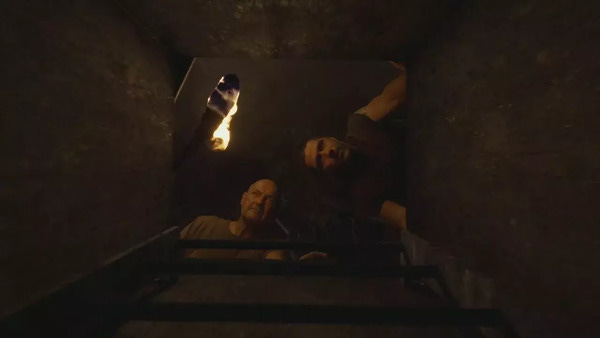
Episode 23-25: EXODUS, Part 3 (Survival is all relative, Jack). In which our three plotlines resolve and it all goes down.
To get one plot out of the way: Charlie and Sayid get Aaron back without incident. They find Rousseau at the site of the smoke (a bonfire), and The Others have gone, if indeed they ever were there. She’s sad and broken and submits the baby easily. She tells them that she heard the whispers, saying The Others were “coming for the boy.” Charlie brings back one other thing, too: an icon from the Beechcraft, stuffed with heroin.
Next plot. On the raft, Sawyer has a hero moment, saving the rudder when it falls off, and Jin has a healing moment, letting go of his past by gifting Mr. Paik’s watch to Michael. That night, they switch on Sayid’s radar as instructed … and immediately get a ping! They’re saved! Except this is LOST, so, no, they’re not. The Others appear in a small decrepit fishing boat, dressed like vagabonds. They have “come for the boy.” They want Walt. In the fight, Sawyer gets shot, the raft gets exploded, and everyone goes into the water, except Walt, who is abducted by The Others. It’s extremely traumatic.
Main plot. The away team makes their way through the jungle when suddenly they hear the tik-tik-tikking of the monster, and—for the first time—see something of its form, just a hint: a wisp of black smoke.
They’re unnerved by this (and by the squawk of the returning bird), but they’re even more unnerved when the smoke starts to burst out of the ground simultaneously in multiple locations. Everyone runs—everyone, that is, except Locke, who sets down his pack o’ dynamite and walks toward it.
His curiosity doesn’t fade even when the smoke bursts up right beside him … but when he takes a look at it (in a shot that takes a monsters-eye view) curiosity at last gives way to fear. Locke runs, with Jack coming to his aid and Kate coming to Jack’s. Locke is grabbed and dragged through the jungle, and halfway down a hole, before his comrades catch him.
Confoundingly, Locke begs Jack to let him go, insisting he’ll be all right, but Kate dynamites the hole and the monster runs off. Jack demands to know why the hell Locke wanted to be let go into a hole to be killed by a monster. Locke says he believes he, the man of faith, was being tested—something Jack, the man of science cannot accept. And then comes an exchange that bears the full quote treatment:
Locke: Do you really think this all this is an accident? That we, a group of strangers, survived—many of us with superficial injuries? Do you think we crashed on this place by coincidence—especially this place? We were brought here for a purpose, for a reason—all of us. Each one of us was brought here for a reason.
Jack: Brought here? And who brought us here, John?
Locke: The island. The island brought us here. This is no ordinary place; you’ve seen that, I know you have. The island chose you, too, Jack. It’s destiny.
Jack: Did you talk with Boone about destiny, John?
Locke: Boone … was the sacrifice the island demanded.
Jack is alarmed by this. He tells Kate that after this present emergency, they are going to have “a John Locke problem.” An understandable reaction!
They lay the charges.
Hurley sees his numbers on the hatch and warns them desperately to stop, but Locke pays no heed and lights the fuse—the hatch is blown.
Together, the man of science and the man of faith look down, down, down, down, down … into whatever it is they’ve released, into whatever fate they have chosen within the destiny they’ve been given.
End of Season 1.
Flashbacks. We bang around the place on flashbacks, visiting everyone, getting grace notes from the hours before Oceanic 815 took off, the better to contrast with who they have become, and for my money it’s really, really, good character work—the best of what this show can be.
We learn Sawyer got deported from the country for a bar fight. We learn Locke had to suffer the indignity of being carried onto the plane into his seat. We learn that Charlie was pathetically wrestling a one-night stand over his drug stash the morning of the flight.
We learn Walt tried to run away from Michael the night before the flight. The next morning, at the airport, Walt heard Michael trying to foist him onto his grandmother, saying that Walt was never a responsibility he planned on. Ouch.
We learn that Jack got hit on very weirdly (it’s mostly about his dead dad but she is definitely coming on to him) by a lady named Ana Lucia, who manages to be very pretty through a strategy of being played by Michelle Rodriguez, and who makes a point of telling Jack she’s sitting in the tail section. I’m sure that won’t be relevant anytime soon.
I’d forgotten this one: We learn that Kate used to play Catch Me If You Can games with the marshal, calling him up to explain her extenuating circumstances, which he took as taunting. He apparently used the location of the toy airplane in the safe deposit box as bait to draw her out. Sometimes an explanation doesn’t clear things up.
We learn Shannon tried to get Sayid arrested after Sayid asked her, then a stranger, to watch his bag for a moment. It’s played to highlight Shannon’s willingness to use casual racism to make trouble, contrasted with her growth since then—but honestly, you’re not supposed to do that, Sayid! You know this! You’re very smart and they announce it literally every 2 minutes!
We learn that Jin was also planning an escape from the constraints of his life—an escape he hoped included Sun—but was foiled when an encounter with one of Mr. Paik’s operatives assured him that he was always being watched and would never be free.
And we learn Hurley overcame a massive series of mostly comic obstacles to make the flight, without noticing how the numbers 4, 8, 15, 16, 23, and 42 keep popping up along his way … suggesting that fate is as much a matter of determination as it is destiny; that you will find your fate threaded through your life wherever you might choose to go, but you still select your destination.
Which brings us to belief.
B E L I E F
Plenty to dig into today. I’m going to address a couple specific plot mysteries and round up my main Season 1 takeaways.
1) The infection. As I said from the very first entry, the central dynamic I see in LOST is one of observation and belief. It’s not just a central theme for the plot or the character arcs (though it is), but it’s the way we’re meant to watch the story unfold. We’re given a lot of information, and we’re shown a lot of things. We are meant to observe the things we’re shown, and use the evidence of what happens to determine which things to believe, with the things that fit best with that observation likely being true. And, when we reach the edges of our understanding, we have to make our best choices about what to believe, based on what we have observed to be most true.
Why do I say all that? Because “infection” has always been a mystery I was frustrated never got unpacked … until this time watching, when I realized it is probably something told to us that is just meant to be assumed. Assuming that The Adversary (and probably, to the extent that it is willing to do so, The Island) are actually imposing their wills upon our characters—Locke primarily, but all of them to some degree—is the new assumption that has returned the most dividends on this watch.
Example: Sayid and Charlie are on a fast march through the jungle to get Aaron back. At the Beechcraft, Sayid forces Charlie to rest, insisting that if they don’t, Charlie will collapse of exhaustion. They then pause for maybe 40 seconds, really only long enough for Sayid to explain to Charlie that the Beechcraft’s primary cargo was heroin—and off they go again.
Now, on one level, this is probably just a modest contrivance: something that happens with a complex story that has to fit a certain amount of information within a prescribed time limit. But I rarely bother with authorial intent; I’m observing and believing.
And I observe that we’ll learn that Sayid proves among the most susceptible to the phenomenon sometimes called “infection.” And by observing the clearly infected Locke I see that those who are “infected” by The Adversary usually furnish themselves with their own rationales for whatever it is they’re doing. And I observe that we know The Adversary intends to prove that human beings are unworthy, by corrupting them.
Was the Beechcraft truly the most direct route to the smoke? Did Sayid really think they needed to rest? Or did The Adversary see a weakness meet an opportunity, and act to offer Charlie a chance to be corrupted?
Again, you can just call it a narrative contrivance—and it probably was, the surface level of creation. But the show’s creators put all those elements there, which I believe is a brilliant way to allow a view to discover deeper motivations and meanings than those originally intended or even thought of—discoveries which actually enrich and deepen the story for attentive “readers.”
The central question is: can you free yourself from the errors in what you think the creator must have intended (even if you’re right about that intent) to see what the story actually is?
This, by the way, is how I think fiction works, and it’s one big reason why I love this show so much.
2) Time-travelin’ Jin. Rousseau gives us the story of her expedition, but she fails to mention the fact that, as her team came to the island, they pulled a Korean man out of the water, who kept appearing and disappearing over the ensuing months. The reason for this is, I’m sure, simply that the writers hadn’t worked out that level of plot detail (though I do think they knew that time travel was coming), but again I rarely bother with authorial intent, so what’s the story explanation?
The easy answer is: he isn’t relevant to the story Rousseau is telling, she’s seen enough weird shit that a disappearing Korean guy just doesn’t rate, and she doesn’t even know why the Oceanics would care about the Korean guy. This actually could work, because (I checked) she hasn’t met Jin yet. I’m looking forward to seeing if she ever meets Jin in the “regular” timeline.
I believe there is another possibility, which Season 2 will force us to contemplate: that they are not yet in a dimension of reality in which any of those events happened.
I don’t think I want to say any more than that yet.
3) What are The Others up to? My main questions about the events of this episode are: what are the Others doing? Did they announce themselves with the black smoke? If so, why? And why are they dressing themselves as vagabonds?
Last question first: their costumes are camouflage to hide their strength from potential adversaries, as ordered by their leader, Ben Linus, who is already planning an infiltration of his own. I don’t think there’s any further explanation needed.
As for the smoke:
My belief is this: Rousseau did see black smoke the night before her baby (Alex) was abducted—but it was Rousseau who made the smoke this time, both to create the necessary diversion for abduction and as a signal to draw The Others to her so she could make her trade. As somebody particularly attuned to the spiritual aspect of the island, she heard the spirits whispering about The Others’ plans, and misunderstood the intent of the warning to be Aaron, not Walt … and (again, likely to some degree “infected” by The Adversary) saw her opportunity.
If this is true, why did The Others not come to see what the smoke was about? It’s entirely possible they did. They have a lot of resources. They have a submarine. They could have checked it out without Rousseau ever being the wiser, and probably did. (Also probably true of surveillance of the Oceanics on the beach.)
Why did Rousseau see black smoke when Alex was abducted? It never comes up, which means it doesn’t really matter, but let me take a shot. We’ll learn that Rousseau and the baby were actually meant to be killed, as an initiation ritual/test of loyalty for new recruit Ben Linus, and Ben showed a kind of mercy (from our perspective) or weakness (from the Others’ perspective), and merely took the child to raise as his own, sparing the mother (to perhaps a worse fate, granted. Ben’s not exactly an angel).
Bottom line: the Others were a different set then, with a different leader and different goals. They were Jacobians—that is, worshippers/followers of Jacob—who had most certainly been corrupted by The Adversary (see: ordering the murder of a woman and child). My guess is that they worshipped the smoke as if it were Jacob, and Rousseau saw the smoke they created as part of that ritual.
4) Man of science, man of faith: OK, let’s dig into what is going on with Locke, starting with the exchange I quoted above, about the island bringing all of them to one place to fulfill a destiny.
As we know, Locke will be proved completely right about almost all of this, but Jack, who thinks (along with most viewers, I assume) that Locke is talking nonsense, is mostly correct to be alarmed about Locke’s zeal and willingness to sacrifice others to achieve his perceived destiny.
Locke sees Jack’s weakness—an unwillingness to change his preset beliefs about objective reality, even when presented with compelling contrary evidence. But he fails to see his own, which is a faith so blind it leaps without looking, trusting to proofs it hasn’t observed, creating narrative shapes that have been suggested as possible but never actually proved as likely.
Locke desperately wants to belong to something larger than himself, and so he ignores all the compelling evidence, of which there is plenty, that the entity offering destiny to him has intentions other than the ones It is proffering.
Locke’s willingness to be “captured” by the smoke, and his accurate assessment of what is happening, are my primary Season 1 textual support that he has been communing with The Adversary, who has told him a great number of true things, the better to conceal some very large lies.
We know Locke’s seen the smoke before. My belief is The Adversary showed him the light at the heart of island, and told him the smoke is meant to protect the light—which is, in fact, what the smoke is meant to do, even if it is not what the smoke intends to do.
I think The Adversary told him that he, John Locke, is meant to be his human avatar, the leader of all others on the island—which is, in fact, what It intends for Locke … in a way.
I think The Adversary told Locke that the space on the other side of the hatch is an access point to the light—which, in fact, is what it is … sort of.
“Hope is inside,” in other words. And it is … but whose hope? Hope to do what?
As a constant reminder: The Adversary is a hugely powerful entity, represented by the smoke, engaged in an argument with an even more powerful entity, represented by the light, which I name The Island. The nature of the argument as The Adversary sees it is about the worthiness of people, but It has wearied of the argument, and wants to end it. It wants to end it by escaping The Island, and its physical form, the island that has gathered around its light. For an entity like The Adversary, the only way to escape The Island is to end existence itself. It is constrained from doing so by a series of rules imposed upon Itself, and it is seeking a loophole.
I believe that The Adversary is pursuing a lot of different loopholes, but the most immediate one is to open up the hatch and introduce corruption and chaos to the bunker within, which has been sealed against Its influence.
The reason that accessing the bunker can be a loophole is something we’ll soon learn: inside is a mechanism that vents energies. If the energies are not vented, then those energies are sufficient to achieve The Adversary’s goal, which is the end of existence.
It hopes to possess John Locke’s body in order to do so, which means it eventually will need Locke’s dead body somewhere safe on the Island; and, as Locke strolled by some of Its deeper vents, It saw an opportunity to make that happen.
It was trying to test Locke’s faith, in a way … but for Locke to pass the test would have been to learn that his faith was badly placed. I believe The Adversary was doing something we’ll see It do many times again: introduce a situation whereby his target would take an action leading to a death … like putting Locke dangling over a long fall, and convincing him to let go.
It failed … but It will keep looking for new opportunities.
5) A break. Last one. I believe that I’m going to use the occasion of the end of a season to take a break from the LOST posts. How long? Probably not too long. Just long enough.
Right now I sort of have an idea that I’ll start after I’m done with the Sabotage posts.
OK, that’s enough.
See you then.
L O S T
Next Time: Down The Hatch
_____
¹ Everybody to get from street.
² This is actually sort of correct, though I think it’s possible most of The Others, who are inheritors of the Dharma Initiative resources, mostly aren’t aware of this particular Dharma hatch. We’ll get there when we get there.
³ Hurley, hilariously, deadpans: “Well, there’s three good reasons to go.”
⁴ Just want to highlight some more support for my theory that The Adversary exercises a measure of control over the weather.
⁵ Making it a slave ship was an unforced error, in my opinion, because it introduces grim historical story elements that LOST isn’t really interested in grappling with and never actually does. The timeline is all messed up with The Black Rock and Ricardo’s story, which would work better from a story perspective if it were further back than 1867, and would fit better into the timeline of the Trans-Atlantic slave trade and the Ab Aeterno script’s talk of “The New World,” anyway—so I am going to cross 1867 out with red pen and replace it with oh let’s say 1617 … but even so making it a shipment of like 12 white slaves from Spain is just … eh, yeah, I just don’t like the introduction of this element without a real plan for dealing with it. Some parts of Ricardo’s backstory are good, and this part is not one of them.
⁶ I believe this is the mysterious Hurley-bird, which we’ll see again in the Season 2 finale. I’m fresh out of Hurley-bird theories; I just want to highlight its appearance here, because I never noticed it before.
_____
A.R. Moxon is the author of The Revisionaries, which is available in most of the usual places, and some of the unusual places. He is a master of karate and friendship for everyone.

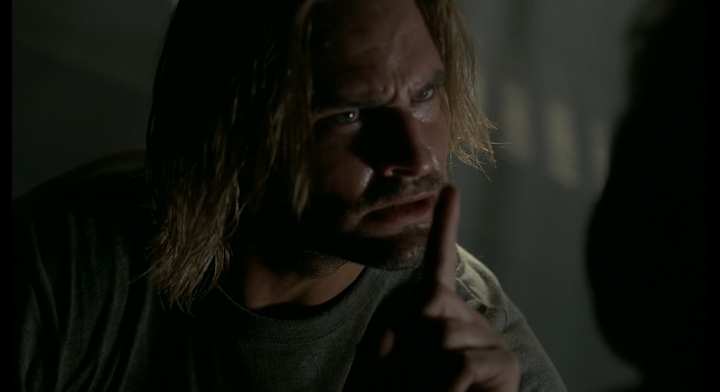
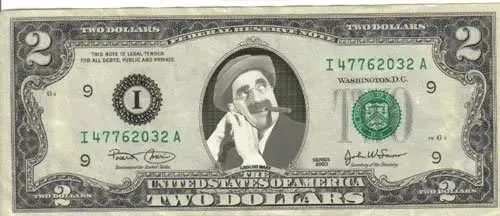
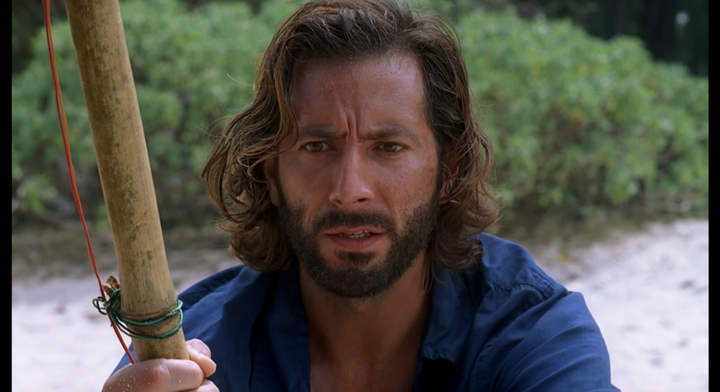
Comments ()